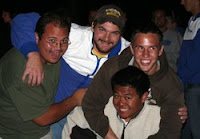Sleep:
- Research shows that sleep deprivation has measurable effects on suppressing i
 mmune function, especially in combination with other life stressors. This is why many students get sick frequently throughout the year; pulling all-nighters have more negative effects than benefits.
mmune function, especially in combination with other life stressors. This is why many students get sick frequently throughout the year; pulling all-nighters have more negative effects than benefits. - Sleep debt has been found to increase the concentration of stress hormones and simultaneously decrease metabolism.
- Eating healthy is not about depriving yourself of certain foods; it is finding a balance in the foods that you eat.
- Student preform better on memory tests when they have eaten breakfast.

- Students gain an average of 4 lbs. in the first 12 weeks of school, mostly due to an increase in caloric intake (about 175 extra calories a day). To prevent this, eat meals with lots of vegetables and fiber. It will make you feel fuller. Also, the old trick of eating your food slowly will help you eat less and gives your brain time to recognize the message from your stomach that you are full.
- Stretching increases circulation, reduces stress, and improves
 coordination.
coordination. - Students who said they exercised at least 3 days a week were more likely to report a better state of physical helath and greater happiness than those who didn't.
- Walking shows the highest compliance rates of any exercise, so you're more likely to stick with it if you start. The easiest way to start including exercise in your daily routine is to walk to class. Try eating at the farthest cafeteria on campus.































